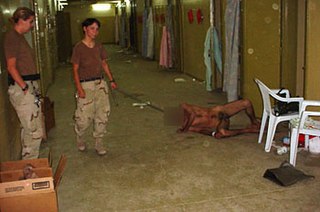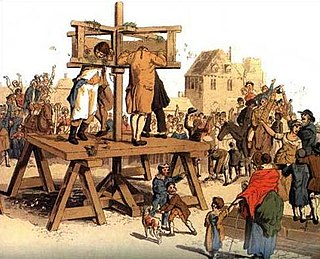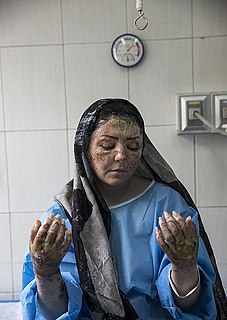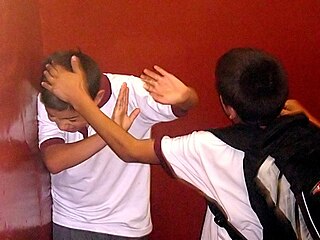 W
WNecrophilia, also known as necrophilism, necrolagnia, necrocoitus, necrochlesis, and thanatophilia, is sexual attraction towards or a sexual act involving corpses. It is classified as a paraphilia by the World Health Organization (WHO) in its International Classification of Diseases (ICD) diagnostic manual, as well as by the American Psychiatric Association in its Diagnostic and Statistical Manual (DSM).
 W
WIn the teaching of the Catholic Church, an indulgence is "a way to reduce the amount of punishment one has to undergo for sins". The Catechism of the Catholic Church describes an indulgence as "a remission before God of the temporal punishment due to sins whose guilt has already been forgiven, which the faithful Christian who is duly disposed gains under certain prescribed conditions through the action of the Church which, as the minister of redemption, dispenses and applies with authority the treasury of the satisfactions of Christ and all of the saints".
 W
WAbuse of power or abuse of authority, in the form of "malfeasance in office" or "official misconduct", is the commission of an unlawful act, done in an official capacity, which affects the performance of official duties. Malfeasance in office is often a just cause for removal of an elected official by statute or recall election. Officials who utilize abuse of power are often those who exploit the ability to use corruption in their advantage.
 W
WBullying is the use of force, coercion, or threat, to abuse, aggressively dominate or intimidate. The behavior is often repeated and habitual. One essential prerequisite is the perception of an imbalance of physical or social power. This imbalance distinguishes bullying from conflict. Bullying is a subcategory of aggressive behavior characterized by the following three minimum criteria: (1) hostile intent, (2) imbalance of power, and (3) repetition over a period of time. Bullying is the activity of repeated, aggressive behavior intended to hurt another individual, physically, mentally, or emotionally.
 W
WAs a result of its high level of immigration and emigration and its status as common source and destination for a large amount of international travel the United States has more incoming and outgoing international child abductions per year than any other country. To address this issue the United States played an active role in the drafting of the 1980 Hague Convention on the Civil Aspects of International Child Abduction Although the United States was one of the first nations to sign the Convention in 1981 the Convention did not enter into force for the US until 1988 with the enactment by Congress of the International Child Abduction Remedies Act which translated the Convention into US law.
 W
WThe Cleveland child abuse scandal was a 1987 wave of suspected child sexual abuse cases, many of which were later discredited, in Cleveland, England.
 W
WCruelty is pleasure in inflicting suffering or inaction towards another's suffering when a clear remedy is readily available. Sadism can also be related to this form of action or concept. Cruel ways of inflicting suffering may involve violence, but affirmative violence is not necessary for an act to be cruel. For example, if a person is drowning and begging for help and another person is able to help with no cost or risk, but is merely watching with disinterest or perhaps mischievous amusement, that person is being cruel—rather than violent.
 W
WThe cycle of abuse is a social cycle theory developed in 1979 by Lenore E. Walker to explain patterns of behavior in an abusive relationship. The phrase is also used more generally to describe any set of conditions which perpetuate abusive and dysfunctional relationships, such as in poor child rearing practices which tend to get passed down. Walker used the term more narrowly, to describe the cycling patterns of calm, violence, and reconciliation within an abusive relationship. Critics suggest the theory was based on inadequate research criteria, and cannot therefore be generalized upon.
 W
WDehumanization is the denial of full humanness in others and the cruelty and suffering that accompanies it. A practical definition refers to it as the viewing and treatment of other persons as though they lack the mental capacities that are commonly attributed to human beings. In this definition, every act or thought that regards a person as "less than" human is dehumanization.
 W
WPrisoner abuse is the mistreatment of persons while they are under arrest or incarcerated. Prisoner abuse can include physical abuse, psychological abuse, sexual abuse, torture, or other acts such as refusal of essential medication.
 W
WDiscrimination is the act of making unjustified distinctions between human beings based on the groups, classes, or other categories to which they are perceived to belong. People may be discriminated on the basis of race, gender, age or sexual orientation, as well as other categories. Discrimination especially occurs when individuals or groups are unfairly treated in a way which is worse than other people are treated, on the basis of their actual or perceived membership in certain groups or social categories. It involves restricting members of one group from opportunities or privileges that are available to members of another group.
 W
WDomestic violence is violence or other abuse in a domestic setting, such as in marriage or cohabitation. Domestic violence is often used as a synonym for intimate partner violence, which is committed by a spouse or partner in an intimate relationship against the other spouse or partner, and can take place in heterosexual or same-sex relationships, or between former spouses or partners. In its broadest sense, domestic violence also involves violence against children, parents, or the elderly. It takes a number of forms, including physical, verbal, emotional, economic, religious, reproductive, and sexual abuse, which can range from subtle, coercive forms to marital rape and to violent physical abuse such as choking, beating, female genital mutilation, and acid throwing that results in disfigurement or death. Domestic murders include stoning, bride burning, honor killings, and dowry deaths.
 W
WDomestic violence against men deals with domestic violence experienced by men in a domestic setting, such as in marriage or cohabitation. As with domestic violence against women, violence against men may constitute a crime, but laws vary between jurisdictions.
 W
WIn psychotherapy and mental health, enabling has a positive sense of empowering individuals, or a negative sense of encouraging dysfunctional behavior.
 W
WHazing, initiation ceremonies, bastardisation, ragging, or deposition, refers to any activity expected of someone in joining or participating in a group that humiliates, degrades, abuses, or endangers them regardless of a person's willingness to participate.
 W
WHumiliation is the abasement of pride, which creates mortification or leads to a state of being humbled or reduced to lowliness or submission. It is an emotion felt by a person whose social status, either by force or willingly, has just decreased. It can be brought about through intimidation, physical or mental mistreatment or trickery, or by embarrassment if a person is revealed to have committed a socially or legally unacceptable act. Whereas humility can be sought alone as a means to de-emphasize the ego, humiliation must involve other person(s), though not necessarily directly or willingly.
 W
WAn insult is an expression or statement which is disrespectful or scornful. Insults may be intentional or accidental. An insult may be factual, but at the same time pejorative, such as the word "inbred".
 W
WIntimate partner violence (IPV) is domestic violence by a current or former spouse or partner in an intimate relationship against the other spouse or partner. IPV can take a number of forms, including physical, verbal, emotional, economic and sexual abuse. The World Health Organization (WHO) defines IPV as "... any behaviour within an intimate relationship that causes physical, psychological or sexual harm to those in the relationship, including acts of physical aggression, sexual coercion, psychological abuse and controlling behaviors."
 W
WMockery or mocking is the act of insulting or making light of a person or other thing, sometimes merely by taunting, but often by making a caricature, purporting to engage in imitation in a way that highlights unflattering characteristics. Mockery can be done in a lighthearted and gentle way, but can also be cruel and hateful, such that it "conjures images of corrosion, deliberate degradation, even subversion; thus, 'to laugh at in contempt, to make sport of' (OED)". Mockery appears to be unique to humans, and serves a number of psychological functions, such as reducing the perceived imbalance of power between authority figures and common people. Examples of mockery can be found in literature and the arts.
 W
WThe native inhabitants of the Central Highlands of Vietnam are known as the Montagnard. The Vietnamese conquered the Central Highlands during their "march to the south". Ethnic Vietnamese (Kinh) people now outnumber the indigenous Degars after state-sponsored colonization directed by both the government of South Vietnam and the current Communist government of unified Vietnam. The Montagnards have engaged in conflicts with the Vietnamese, from the anti-Communist South Vietnamese government, the Viet Cong, to the Communist government of unified Vietnam. There are contrasting views on this issue, as the constitution of the government of Vietnam states "Article 36 of the Constitution, the state invests heavily in education and supports various preferential programmes for ethnic minorities, like ethnic minority boarding schools, lower entry requirements and quota for minorities." Both the initial 1945 constitute and the revised 1992 constitution of North Vietnam and the successor state the Socialist Republic of Vietnam stated that all minority groups in Vietnam have the right to maintain their mother tongues in their schooling as well as to use their languages to preserve their ethnic cultures and values.
 W
WPhysical abuse is any intentional act causing injury or trauma to another person or animal by way of bodily contact. In most cases, children are the victims of physical abuse, but adults can also be victims, as in cases of domestic violence or workplace aggression. Alternative terms sometimes used include physical assault or physical violence, and may also include sexual abuse. Physical abuse may involve more than one abuser, and more than one victim.
 W
WA poison pen letter is a letter or note containing unpleasant, abusive, or malicious statements or accusations about the recipient or a third party. It is usually sent anonymously. In the term "poison pen", the word poison is used figuratively, rather than literally. Poison pen letters are usually composed and sent to upset the recipient. They differ from blackmail, which is intended to obtain something from the recipient. In contrast, poison pen letters are purely malicious.
 W
WPolitical corruption or Malpolitics is the use of powers by government officials or their network contacts for illegitimate private gain.
 W
WPrejudice is an affective feeling towards a person based on their perceived group membership. The word is often used to refer to a preconceived, usually unfavourable, evaluation of another person based on that person's political affiliation, sex, gender, beliefs, values, social class, age, disability, religion, sexuality, race, ethnicity, language, nationality, beauty, occupation, education, criminality, sport team affiliation or other personal characteristics.
 W
WPrisoner abuse is the mistreatment of persons while they are under arrest or incarcerated. Prisoner abuse can include physical abuse, psychological abuse, sexual abuse, torture, or other acts such as refusal of essential medication.
 W
WAn insult is an expression or statement which is disrespectful or scornful. Insults may be intentional or accidental. An insult may be factual, but at the same time pejorative, such as the word "inbred".
 W
WScapegoating is the practice of singling out a person or group for unmerited blame and consequent negative treatment. Scapegoating may be conducted by individuals against individuals, individuals against groups, groups against individuals, and groups against groups.
 W
WOn February 10, 2019, the Houston Chronicle and San Antonio Express-News published an investigative report into widespread sexual abuse within member churches of the Southern Baptist Convention. The report found since 1998, roughly 380 clergy, lay leaders and volunteers had faced allegations of sexual misconduct, leaving behind over 700 victims. The extent of misconduct is further complicated by work within the Southern Baptist Convention to move sex offenders to other communities and resist attempts to address the culture of abuse.
 W
WA shock collar or remote training collar is any of a family of training collars that deliver electrical stimulation of varying intensity and duration to the neck of a dog via a radio-controlled electronic device incorporated into a dog collar. Some collar models also include a tone or vibrational setting, as an alternative to or in conjunction with the shock. Others include integration with Internet mapping capabilities and GPS to locate the dog or alert an owner of his/her whereabouts.
 W
WStockholm syndrome is a condition in which hostages develop a psychological alliance with their captors during captivity. Emotional bonds may be formed between captors and captives, during intimate time together, but these are generally considered irrational in light of the danger or risk endured by the victims. Stockholm syndrome has never been included in the Diagnostic and Statistical Manual of Mental Disorders or DSM, the standard tool for diagnostic of psychiatric illnesses and disorders, mainly due to the lack of a consistent body of academic research. The syndrome is extremely rare as noted by the U.S. Federal Bureau of Investigation's Hostage Barricade Database System and Law Enforcement Bulletin estimating that fewer than 5% of kidnapping victims show evidence of Stockholm syndrome.
 W
WStrangling is compression of the neck that may lead to unconsciousness or death by causing an increasingly hypoxic state in the brain. Fatal strangling typically occurs in cases of violence, accidents, and is one of two main ways that hanging causes death.
 W
WTorture is the act of deliberately inflicting severe physical or psychological suffering on someone by another as a punishment or in order to fulfill some desire of the torturer or force some action from the victim. Torture, by definition, is a knowing and intentional act; deeds which unknowingly or negligently inflict suffering or pain, without a specific intent to do so, are not typically considered torture.
 W
WUmpire abuse refers to the act of abuse towards an umpire, referee, or other official in sport. The abuse can be verbal abuse, or physical abuse. For example, Australian Football League spectators use the term "white maggot" towards umpires at games, when they do not agree with an umpire's decision.